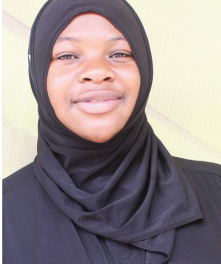
COVID VACCINES: Islamic Ethics and the Concept of Harm
Talking of vaccines and its effects without first understanding how our natural immune system works is an absurdity. According to medical experts, when disease-causing viruses and bacteria infect our bodies, they carry a sort of molecular “mark” that our bodies can recognize as foreign. To defeat an infection, our immune system generates an army of disease-fighting cells to identify the invaders by this particular mark. Generating this defence
takes days, but after an infection has passed, immune cells called memory cells, which is a type of white blood cell,
remain circulating in the body for a long time. This means the immune system is ready and stable to defeat a future
infection before it has an opportunity to gain a grip and cause the disease again. The body, in this case, is immune.
But a million-dollar question is how do vaccines work?
Vaccines contain weakened or inactive parts of a particular organism (antigen) that triggers an immune response within the body. According to the World Health Organization (WHO) and other medical experts, different types of vaccines work in different ways to offer protection. With all types of vaccines, the body is left with a supply of “memory cells” that will remember how to fight that virus in the future. WHO also says that no vaccine is 100% risk-free, just as no medical procedure is 100% without risk. At the same time, opting out carries risks too
to ourselves and to others.
However, there have been some divisions on whether Muslims should get Covid -19 vaccines or not. Being a relatively new disease, it is not surprising to find that people have been divided in their understanding of both the
Covid-19 pandemic and the vaccines being produced to fight the pandemic. Among Muslims, there are those who do
believe that the pandemic is real and that it is caused by a virus and that the vaccines are being made in good faith
to help mankind. This group of Muslims will understand the need to take the vaccines in order to protect themselves
and others by Allah’s permission through these vaccines.
On the other hand, we have Muslims who either deny that the pandemic exists or believe that the vaccines are being
made to harm people and thus will be made compulsory for everyone so as to harm everyone. For this group of
Muslims, the first important reminder is that no harm can come to us except by Allah’s permission. The second reminder is that the most important thing to do as long as one is alive is to perform all obligatory acts of worship in the manner that Allah ordained for us.
Here we have a situation where places of worship are temporarily being closed due to the pandemic. The situation has reached to the extent that our ability to go for hajj, which is a pillar of Islam, is affected. One thing which would help for the situation to get back to normal, is when authorities in each affected country see that the majority of their
population has been vaccinated. If it is not possible for some to believe that the vaccines are being made in good
faith, perhaps they could consider taking the vaccines with the intention that places of worship should be opened so
that they can perform all their ibadah without restrictions. They could take the vaccines whilst knowing that Allah
will protect them just like He protected Ibrahim Alyhi Salaam when the idol-worshippers threw him into the fire. If
Allah allows the vaccine to harm them as this group of Muslims believe, then they will die victorious because of their
intention to protect their ibadah by taking the vaccine.
In conclusion, medication is an Islamic issue and concern, as mentioned by the Prophet Mohammad (Peace Be Upon
Him) “Make use of medical treatment, for Allah has not made a disease without appointing a remedy for it.” (Sunan Abi Dawud 3855). However, Muslims should be obligated to get vaccinated just as it is now an obligation to wear a mask, wash our hands frequently and practice social distance during this pandemic. And despite the fact that getting vaccines is voluntary, Muslims should make a wise decision upon having an accurate understanding of the vaccine’s safety and risks and weighing them properly.






























